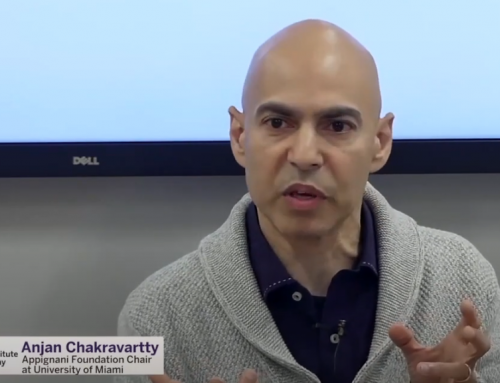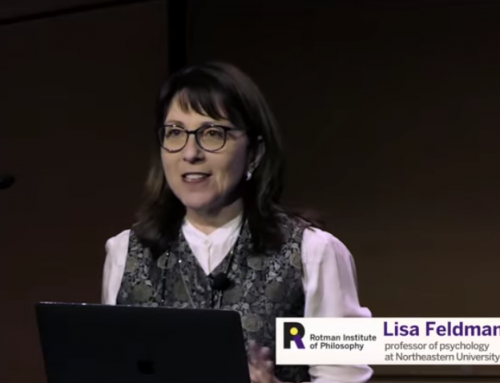 The last talk in the Rotman lecture series, given by George Reisch of Northwestern University, focused on how the political and social climate of the late 1950s influenced Kuhn’s famous book The Structure of Scientific Revolutions. Reisch claims that Kuhn’s early insistence that paradigms immutably and comprehensively colour the way scientists perceive phenomena and assess theoretical claims was rooted in the popular view that brainwashing was a real threat in the battle with communism. From the press coverage of US defectors in the Korean War to the movie “The Manchurian Candidate”, the idea that people’s minds could be altered so that they then perceived the world in a fundamentally different way was accepted by much of the public. According to Reisch, communist ideology itself was seen as a threat to freedom because it was purported to distort the way its adherents perceived the world, making it impossible for them to make autonomous decisions based on the actual objective facts before them.
The last talk in the Rotman lecture series, given by George Reisch of Northwestern University, focused on how the political and social climate of the late 1950s influenced Kuhn’s famous book The Structure of Scientific Revolutions. Reisch claims that Kuhn’s early insistence that paradigms immutably and comprehensively colour the way scientists perceive phenomena and assess theoretical claims was rooted in the popular view that brainwashing was a real threat in the battle with communism. From the press coverage of US defectors in the Korean War to the movie “The Manchurian Candidate”, the idea that people’s minds could be altered so that they then perceived the world in a fundamentally different way was accepted by much of the public. According to Reisch, communist ideology itself was seen as a threat to freedom because it was purported to distort the way its adherents perceived the world, making it impossible for them to make autonomous decisions based on the actual objective facts before them.
According to Reisch, Kuhn’s views about paradigms can be seen as an extension of the brainwashing idea into the realm of science. Like brainwashing, accepting a particular paradigm alters the way scientists perceive the world and reason about it. Though Kuhn later relaxed his views about the immutability and comprehensiveness of paradigms, Reisch notes that this occurred after the political climate had calmed substantially and the threat of brainwashing was dismissed.
An interesting question this poses for the history of science more generally is the extent to which contemporary ideology shapes historical reconstructions of science. If Reisch is right and Kuhn’s views were heavily influenced by the political environment of his day, what does that say about our current histories of science?
On a more critical note, Reisch’s argument seems to rely heavily on the Kuhnian-type assumption that the political environment necessarily colours the way philosophers view the world. His direct evidence only supports the claim that the political climate of the time viewed brainwashing as a serious threat. If one accepts that political paradigms necessarily influence philosophical work then this may suffice as evidence. For those who find this assumption unconvincing, Reisch could strengthen his argument by explicitly linking political fears to Kuhn’s work on science.
A link to a video of the talk will be posted shortly





